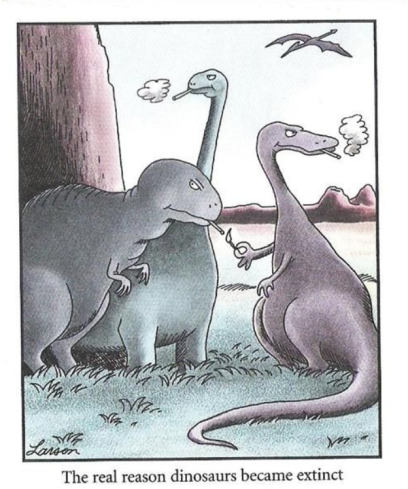
Finding Meaning in Good Routines
In our daily lives, we establish routines to shape our day and make it both manageable and understandable. We also develop habits, both bad and good, to cope with life and make it more
enjoyable.
Routine or habit?
A habit is less time-precise and less formal than a routine. In this regard, getting up and getting ready for work, working certain fixed hours, going to the gym, having a coffee at the café every
day for lunch, or a special meal on Sunday, are routines. Habits include such things as listening to music, watching television, surfing the internet, socializing, consuming certain food or drink
regularly, and even dressing in a certain style. However, the line between routine and habit can at times be blurred.
Managing chaos
The world is a random and chaotic place in which, at the macro level, we have little control over what happens to us. Hubris, or the idea that any one individual can control their own and other
people’s fate, beyond their own personal private behavior, is the refusal to admit this fact. Yet, on the personal level, including in our relationships, we have a lot of agency in how we respond to
the challenges life presents us. One way we do this is by establishing routines.
Getting your house in order
Human beings like order. Order is a natural phenomenon, by which I mean that nature has its own hierarchy in which everything serves a purpose and where nothing is wasted. All species on Earth,
including humans, have adapted to the natural order through evolution. Such a system however is not stable, as randomness, including natural disaster; and entropy or decay, play a part. Just ask the
dinosaurs.
Hedging for disaster
Not all natural disasters are bad, however. For example, wildfires play an important role in renewing habitat by clearing the underbrush and allowing new plants to grow. As for entropy in a natural
system, this is solved by eliminating what is maladaptive, wasteful, or overabundant, through decomposition, predation, and/or starvation. Some may say nature is cruel, but that is a human value
judgement. Nature is not good or bad in a moral sense, it is simply indifferent beyond what is most efficient at preserving and continuing life in all its myriad forms. Most humans find such a
thought terrifying. In order to cope, we have established civilizations whose goal is to effectively shield us from the law of nature. In our individual lives, we attempt to shield ourselves from
disorder through our routines and habits. This is a healthy response.
Loving work
The most important routine an individual has is that of work. Contrary to what the “make a million dollars, retire early” acolytes would have you believe, humans were meant to work and be of service
to each other. For many, the importance of work is highlighted when they retire and find they don’t know what to do with themselves. Working from home can be difficult because it removes the routine
of physically going to the office, while also blurring the distinction between the private and the professional at home.
Getting up at fixed time, getting dressed from public life (i.e. not sitting at your kitchen table in your pyjamas), and having a dedicate space to work at home, such as an extra room, ensures that
you can be focused and productive. The problem with work is not that it is something we must do, but rather that so much work is abstracted from our direct needs, local environment, and nature;
and/or uninteresting, overly repetitive, or unnecessary, so-called make-work. Add to this long-hours, and it’s no wonder people burn out or want to drop out of the rat race. It is ironic how in an
advanced technological society we work more than our so-called primitive hunter-gatherer forebears. In addition to routine, we need meaningful
work. We work to eat, but we can also learn by working. If we do meaningful work, we can achieve a flow state which is synonymous with play.
A balanced life
It's true, as the expression goes, that "All work and no play makes Jack a dull boy." Work, although crucial to finding meaning in life, is just one part of the human experience. We also need to eat,
sleep, reproduce, learn, and play. So, it’s important to establish routines and habits that account for the full spectrum of human needs.
Exercise is an essential routine that we should all incorporate into our lives. Whether it is going to the gym, or taking a walk each day, or having some particular sport we like to practice,
exercise is not only a great way to stay in shape and avoid health problems, but it can also be fun and a form of play. Staying healthy improves our mood and can also make us more productive at
work.
Cooking and eating are also important routines in our lives. Food, cooking, and eating are the foundation of human culture which connects us directly back to our natural origins. Humans are social
animals and sharing meals is the most important way we bond with each other at the family and community level.
Bad habits and good routines
It occurred to me in writing this, that rituals and routines are almost invariably good, while habits tend to be bad, such as smoking; or drinking, watching television, and eating junk food to
excess. It seems that the goal is to either eliminate bad habits, or in some cases to structure them into routines, with fixed quantities and/or schedules. For example, drinking is appropriate after
a certain time of the day (for example, after work), in the company of others, and with a fixed limit. Watching television in the daytime is tragic, while watching the news or a movie after dinner
can provide a much needed and appreciated period of relaxation. Eating an entire bag of chips in one sitting should never be a goal. Best to practice portion control and pour a few into a bowl.
Smoking, which has no redeeming qualities, should be eliminated entirely.
Don’t be a monk
The routines we establish act as a compass to give stability and direction to our lives as we navigate an uncertain world. Our biology dictates many of our routines such as eating and sleeping, but
we can ensure that these and other routines are healthy and suit the lives we want to live. Get enough sleep, don’t work too much, or play too hard.
Living a healthy life is important, but you don’t have to be miserable doing it. It’s okay to eat some chips every now and again, and to enjoy coffee and alcohol in moderation. Occasionally, it can
be fun to have a night out on the town with your significant other or with friends. You shouldn’t feel bad sleeping in on a Sunday. That’s your body saying you need to top up on rest.
Change is good
Human life has traditionally been scheduled around the seasons, with periods of abundance and scarcity, and times to sow and reap. The rituals and related festivals we have adopted are a celebration
of this natural cycle. On a personal level we should also have a little variety in what we do, as too much routine can make life dull. So, every now and again why not try something new? Take a
different route to work or on your daily walk, make a different meal or try a different food, take up a new hobby or learn a new skill. It is this balance between the familiar and novel that makes
life truly enjoyable.
If you enjoyed this post, consider leaving a tip.
Thanks for reading.




